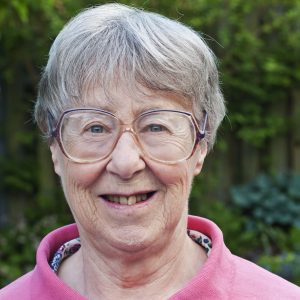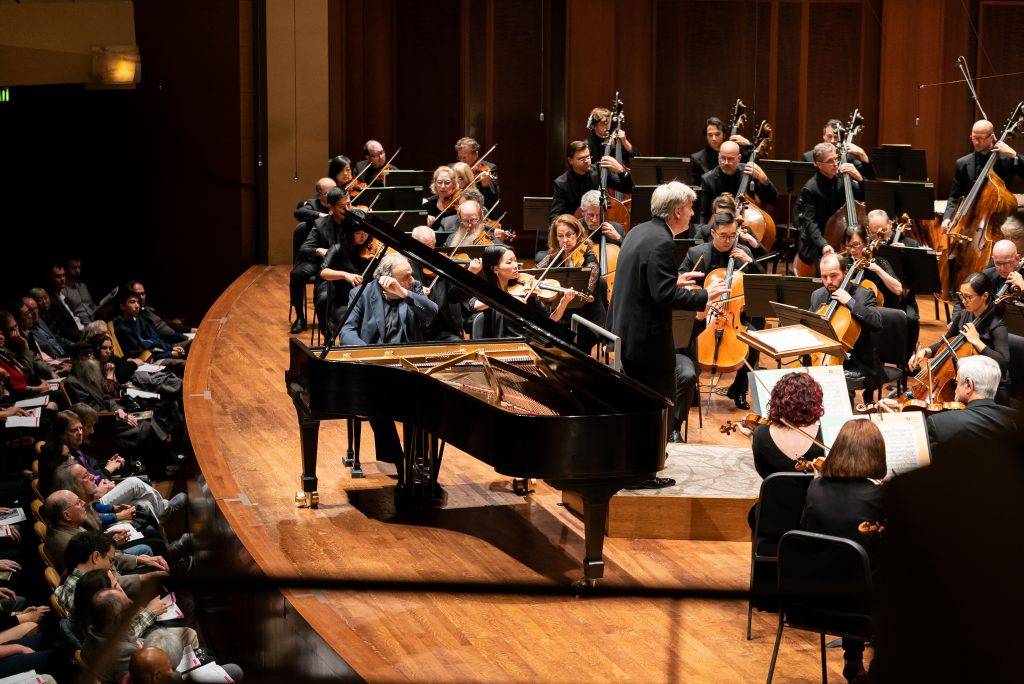By Philippa Kiraly, Special to The Sybaritic Singer
Photo credit: James Holt (used with permission)
It was a thrilling performance Thursday night at Benaroya Hall, as the opening of the Seattle Symphony Masterworks Series for 2019-2020 began with Thomas Dausgaard on the podium starting his tenure as music director. As happened also at last Saturday’s Gala performance, which always prefaces the season with a glittering audience and big dinner after the concert, Dausgaard, who has guest conducted here many times, was given a tumultuous welcome as soon as he walked out on stage and again at the end. Then, at both concerts, not only the audience applauded him vociferously but concertmaster Noah Geller led the musicians in refusing to stand for plaudits when Dausgaard came out for a bow, insisting that he take the bow for himself. This is a signal honor, not accorded very often by orchestra musicians anywhere.
The program Thursday, repeated Saturday night, included the much-loved Brahms Piano Concerto No. 2 with Yefim Bronfman as soloist and Mahler’s great Symphony No. 1, as well as, Flounce, by Finnish composer Lotta Wennakoski. This brief work premiered in 2017 at the last night of London’s famous Proms and has been much performed since, but to this critic it was largely five minutes of discordant high screams: jangling, bouncy, with at one point what sounded like very odd bird calls and twittering, but mostly very loud, clashing harmonies.
Mercifully short, it was followed by the familiar Brahms, distinguished at the start by the beautiful solo horn passage accomplished with nuance by principal Jeff Fair. With the piano’s response followed by notable quality from the strings, marked with lyrical depth and serenity, the concerto was off to an absorbing start, compelling attention throughout all 46 minutes of it.
Bronfman was completely at ease in this technically formidable work, bringing it all the expected shaping and character of the music. Dausgaard worked closely with him, watching his every nuance and tempos when playing, and directing the orchestra almost over his right shoulder, the orchestra clearly knowing just what he wanted. Principal cellist Efe Baltacigil shone with his long, sensitive solos at the start of the third movement. Concertmaster for the Brahms was one of the finalists for the open associate concertmaster position, Helen Kim.
But, to this writer, the triumph of the evening was Dausgaard’s interpretation of the Mahler. The symphony is almost an hour long, but the imagery of nature which Mahler intended, from the dawning of the day from infinitesimal sound, the awakening of the birds and the gradual coming to life of that world, together with nearing hunting horns (trumpets, first off stage, then on) became, in Dausgaard’s hands, a vivid musical imagery rising to a joyous cacophony. The lively peasant dance gave way to the telling strains of the familiar nursery round Frere Jacques in minor key, mournful, almost lugubrious at first, speeding up to an unexpectedly jaunty end. With a startling crash bang the last movement began wild and furious, leading to a contrasting anticipatory serenity with the hunting horns and the birds returning.
The whole was gripping from start to end. Dausgaard, in full command, uses every inch of his rangy self to draw from the orchestra exactly what he wants. At times he is dynamic, crouching, reaching, sometimes in racing start stance, his white hair shaking with the vigor of his conducting, at others exquisitely precise, eliciting tiny details of nuance, phrasing, tone quality from the orchestra. It was superb. The audience responded as though for a rock concert.
The performance is repeated Saturday night.
 Philippa Kiraly has writing classical music criticism since 1980, for several newspapers in northern Ohio and Seattle, magazines, both local and national, and blogs. She is passionate about the importance of independent criticism for the fine arts, an art in itself which is dying with little interest by many publications and no longer a viable career for most. But writing for tickets is always worthwhile!
Philippa Kiraly has writing classical music criticism since 1980, for several newspapers in northern Ohio and Seattle, magazines, both local and national, and blogs. She is passionate about the importance of independent criticism for the fine arts, an art in itself which is dying with little interest by many publications and no longer a viable career for most. But writing for tickets is always worthwhile!
Pippa is a keen gardener, a keen grandparent, and can get lost in a good book.

